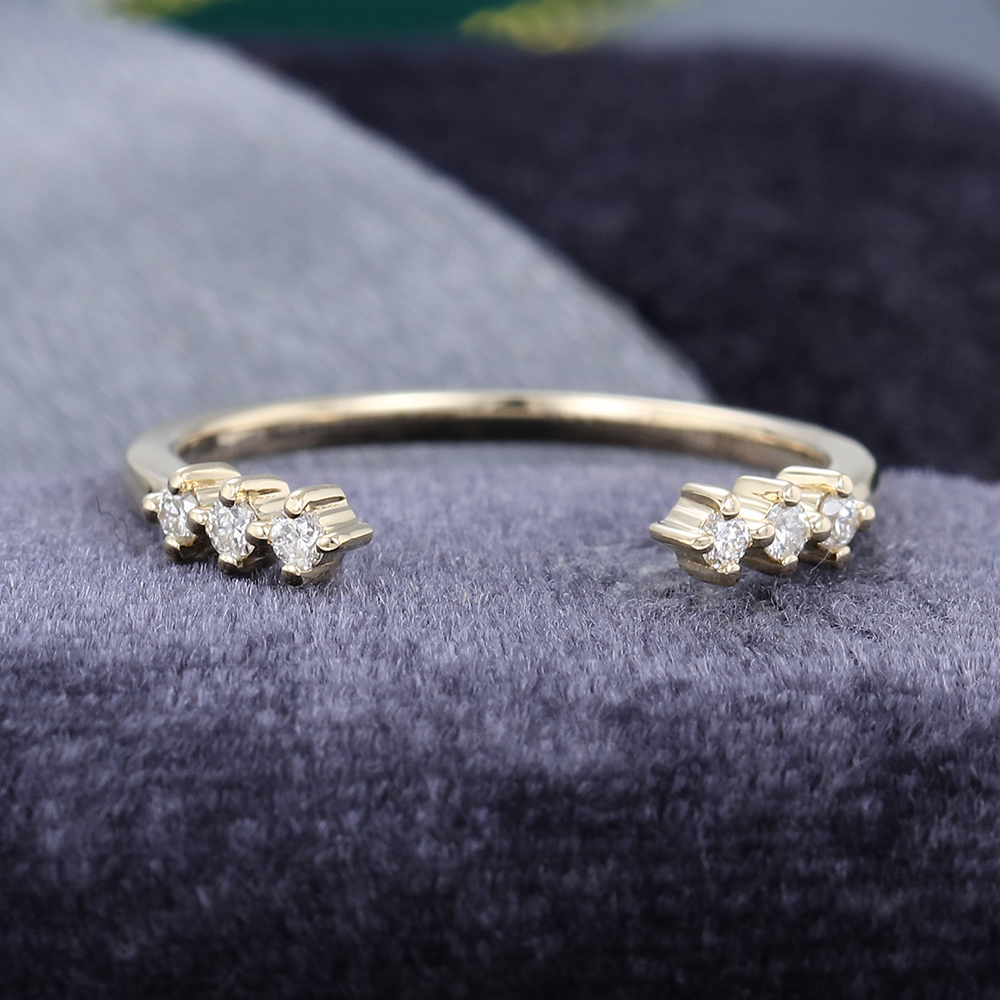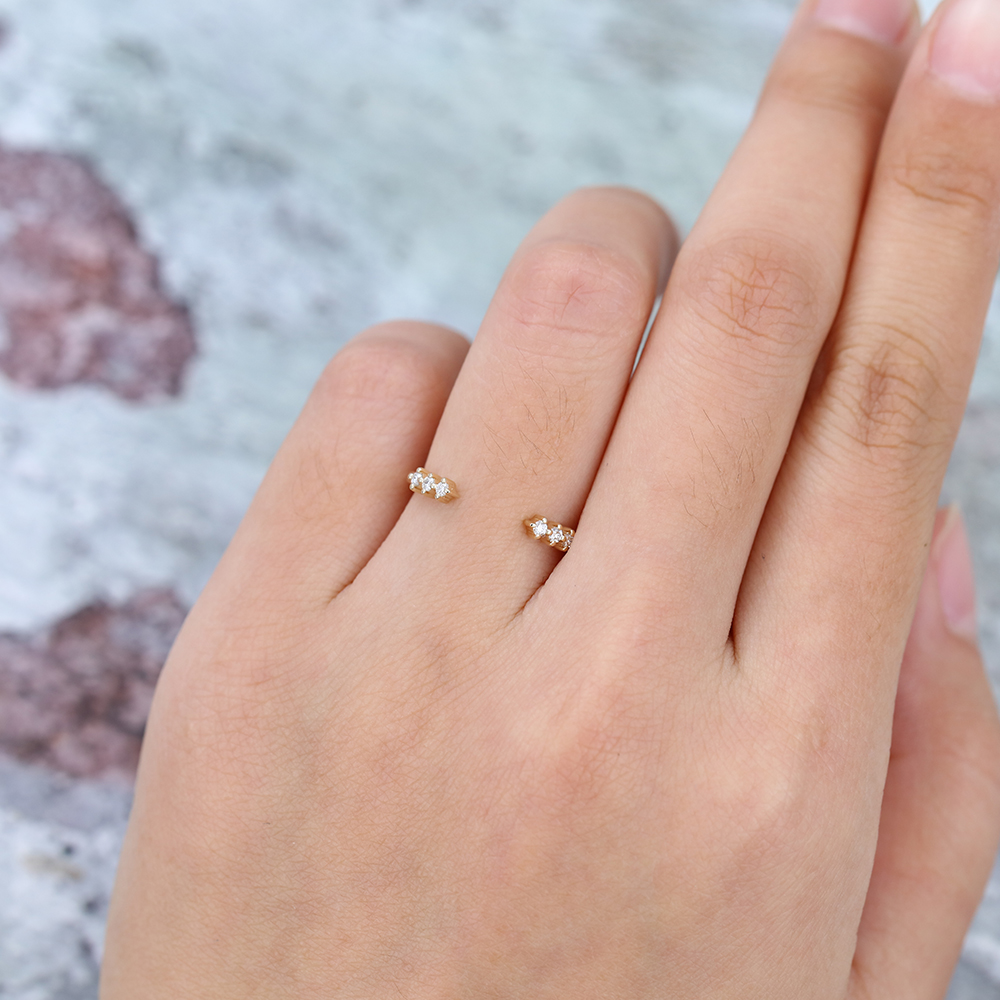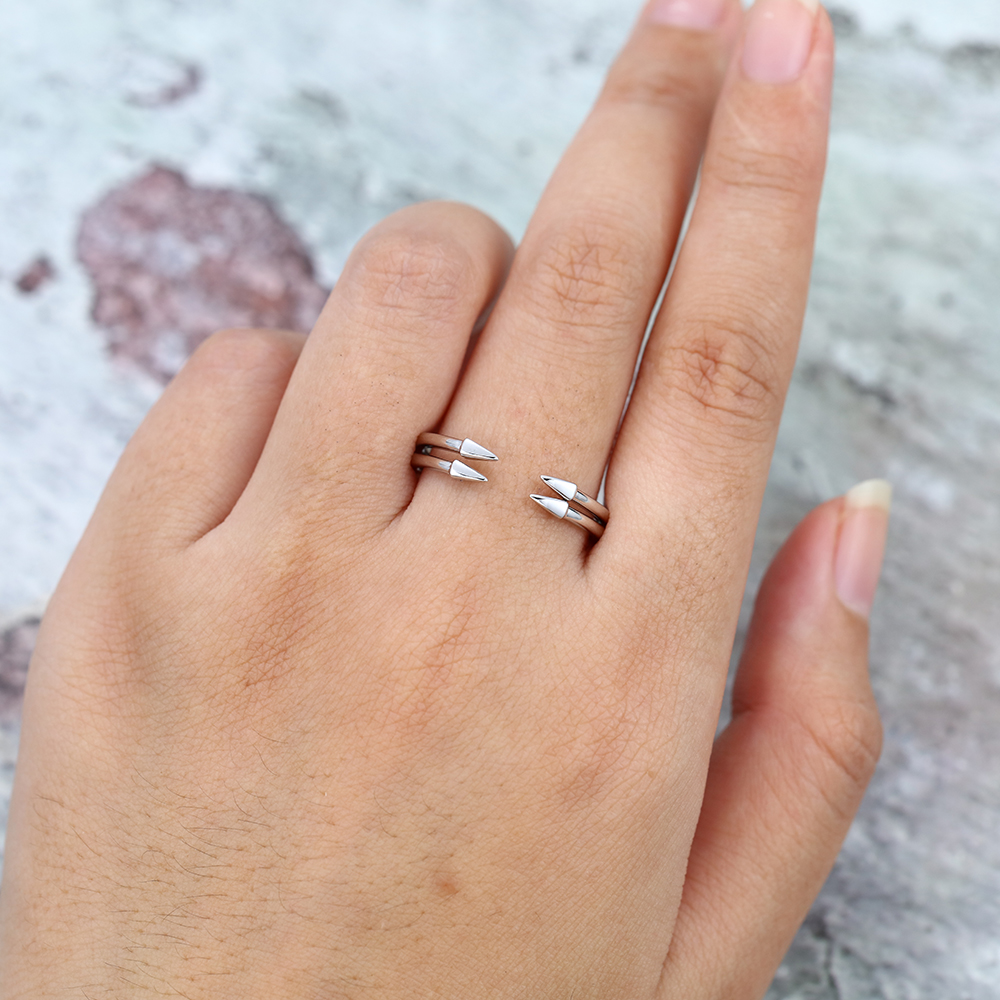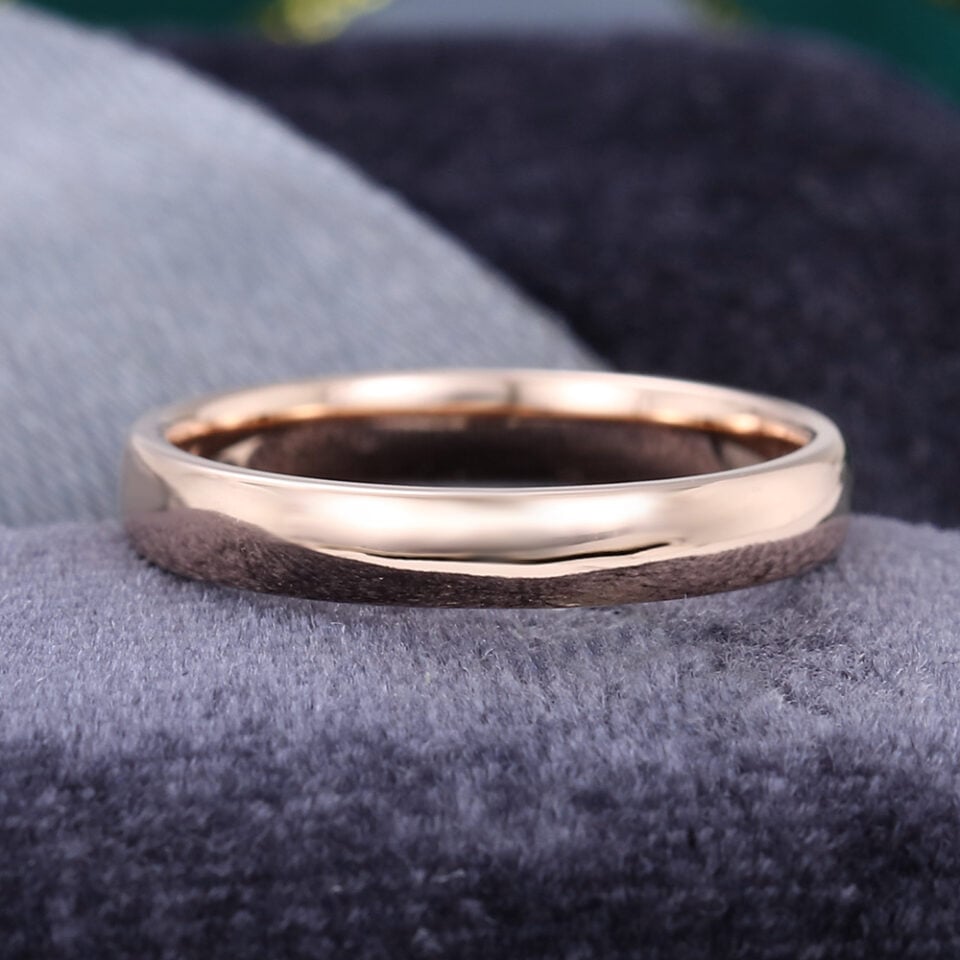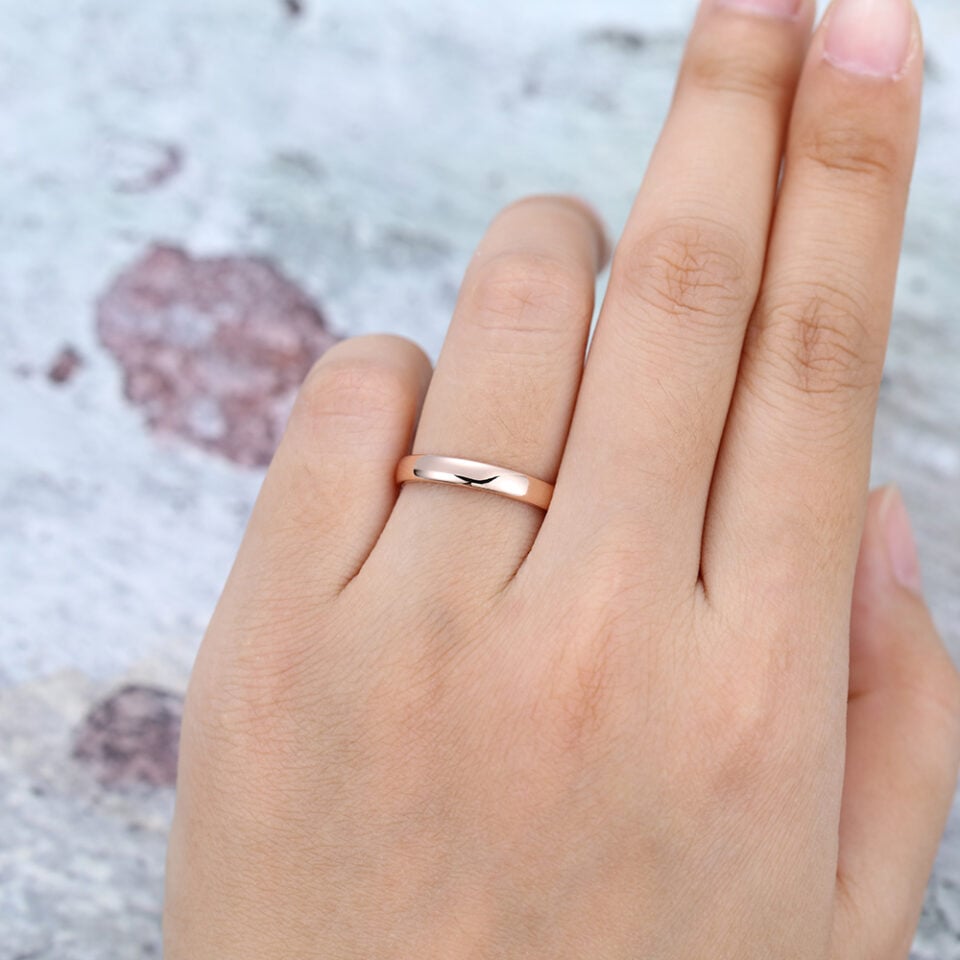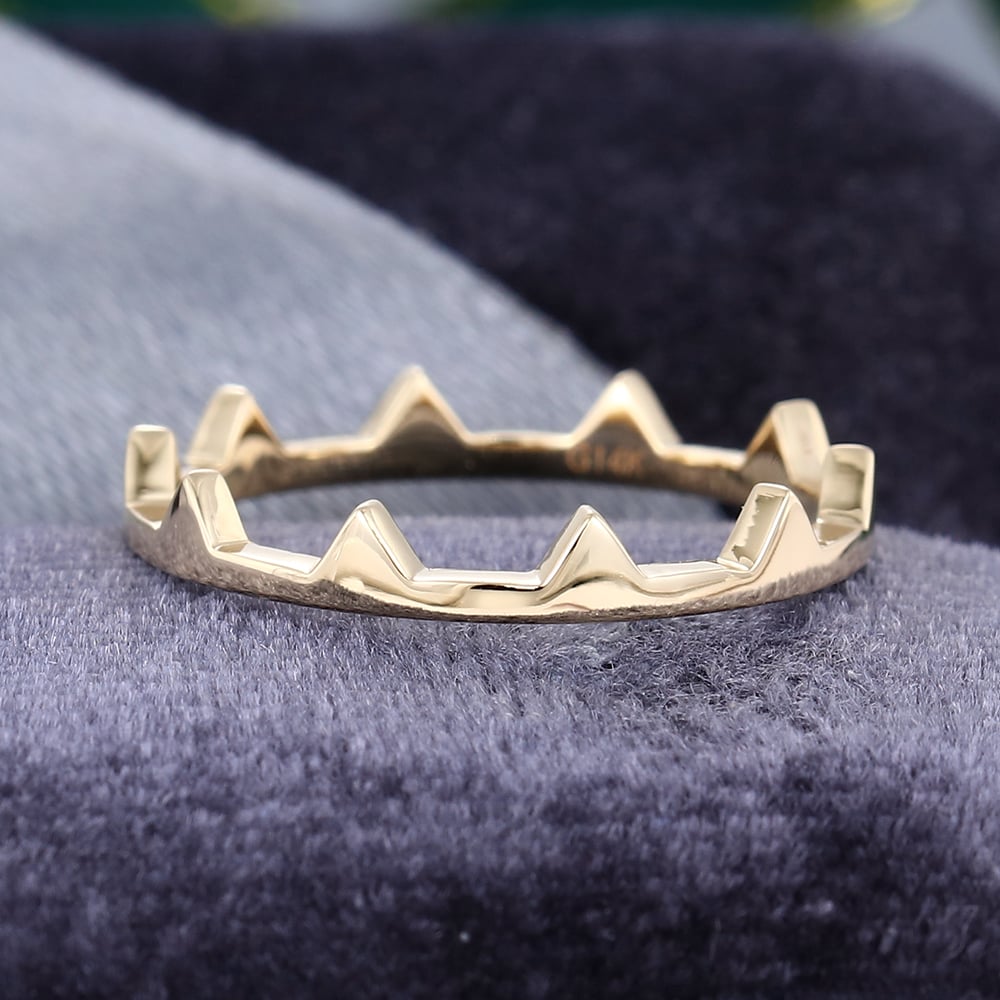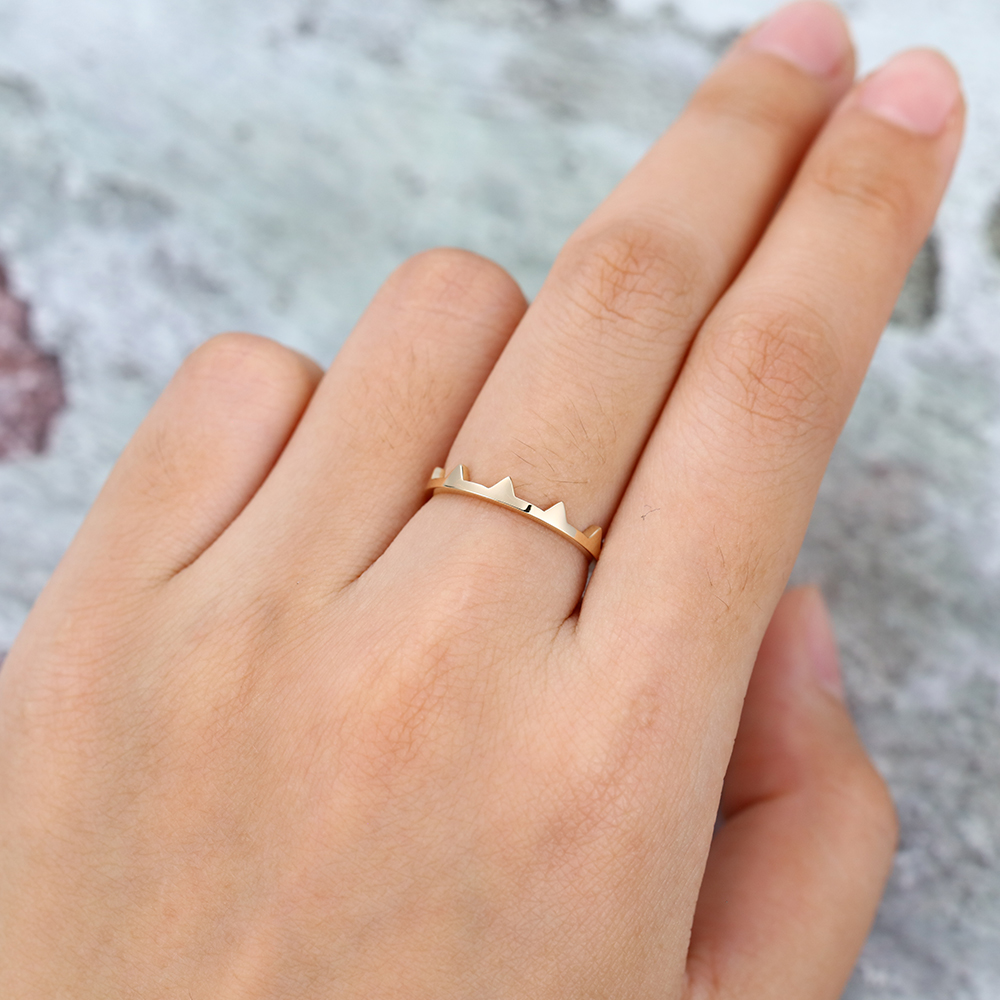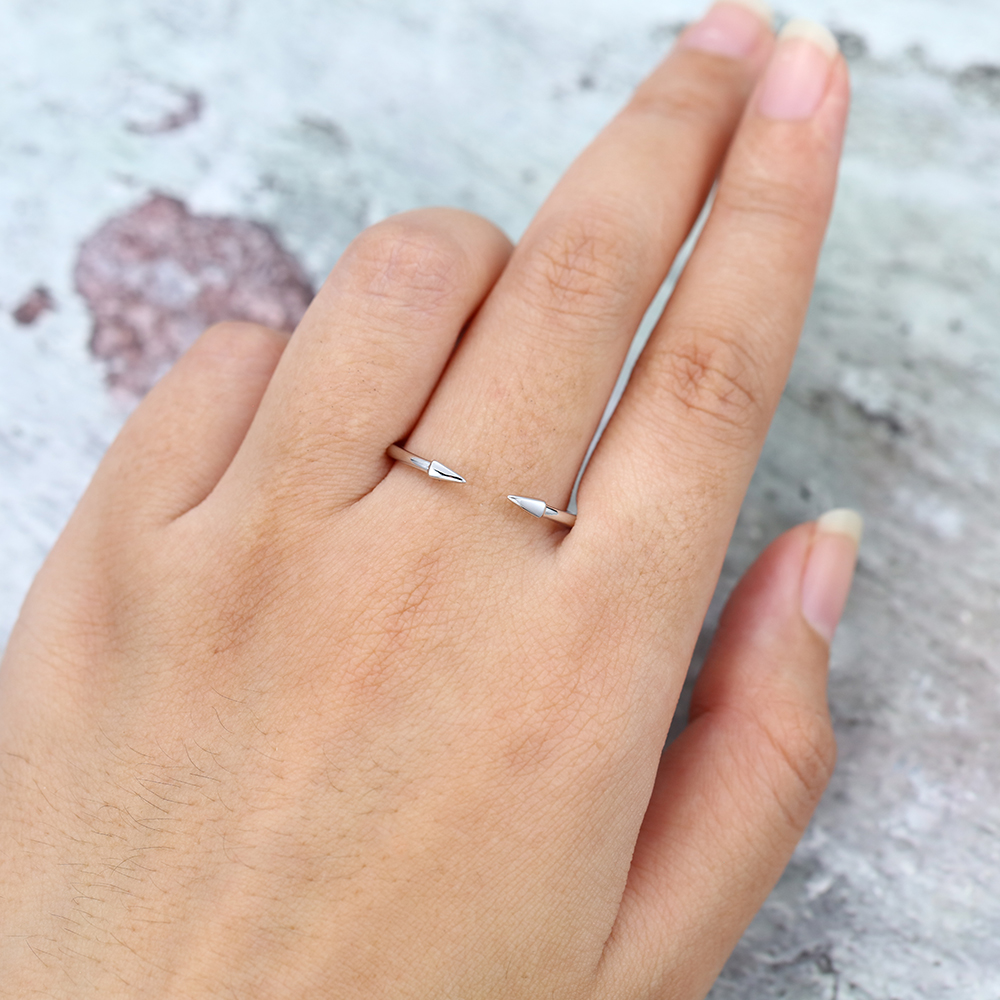Welcome to our Minimalist Wedding Rings collection, where timeless elegance meets simplicity. These rings are a celebration of the beauty found in understated design and the love that speaks for itself. Crafted with precision and a focus on clean lines and unadorned beauty, our minimalist wedding rings are a perfect choice for those who believe that less is more. Explore this collection to discover the perfect symbol of your love that reflects the essence of elegance and simplicity on your special day.
Minimalism
Showing all 5 results
A minimalist ring is a type of jewelry known for its simple and unadorned design. It typically features clean lines, basic shapes, and often lacks elaborate embellishments or gemstones. These rings are made from high-quality materials like gold or silver and are valued for their versatility and timeless appeal. Minimalist rings are favored by those who appreciate a clean and understated aesthetic in their jewelry, and they can be worn alone or stacked with other rings for a personalized and elegant look.
Minimalist Wedding Rings FAQ
A minimalist ring is a type of jewelry that is characterized by its simplicity and clean design. It typically features a very understated and unadorned appearance, often with a focus on clean lines and basic geometric shapes. Minimalist rings are often made from materials like sterling silver, gold, or other metals, and they may or may not include gemstones or other embellishments.
The key features of a minimalist ring include:
- Simple Design: Minimalist rings usually have a straightforward and uncluttered design with few or no intricate details.
- Clean Lines: They often incorporate clean lines, basic shapes, and geometric elements, such as circles, squares, or rectangles.
- Subtle or No Gemstones: Minimalist rings may feature small, subtle gemstones or may be completely devoid of any gemstone or decoration.
- High-Quality Materials: These rings are often made from high-quality materials, such as gold, silver, or platinum, and may have a polished or matte finish.
- Versatility: Minimalist rings are known for their versatility and can be worn in a variety of settings, from everyday wear to formal occasions.
- Timeless Appeal: The simplicity of minimalist rings gives them a timeless and enduring quality that transcends fashion trends.
These rings are popular for individuals who prefer a more understated and elegant look or for those who appreciate the concept of “less is more” in their fashion choices. Minimalist rings can be worn alone for a subtle statement or stacked with other rings for a layered and customized style.
Minimalism is becoming increasingly popular for several reasons:
Simplicity and Clutter Reduction: In a world filled with constant information and consumerism, many people are seeking a simpler, more uncluttered lifestyle. Minimalism promotes the idea of “less is more,” which resonates with those looking to reduce physical and mental clutter.
Environmental Awareness: Minimalism often goes hand in hand with sustainability. As people become more environmentally conscious, they opt for fewer, higher-quality possessions that last longer, reduce waste, and have a smaller ecological footprint.
Financial Benefits: Minimalism can lead to significant financial savings. By making deliberate choices and avoiding unnecessary expenses, individuals can achieve financial freedom and security.
Stress Reduction: Reducing the number of possessions and commitments can lead to reduced stress and a greater sense of control over one’s life. Minimalism promotes mindfulness and intentionality.
Digital Minimalism: With the growth of digital technology, people are also embracing digital minimalism, which involves decluttering digital devices, limiting screen time, and focusing on more meaningful online interactions.
Aesthetic Appeal: Many find the clean, simple lines and design of minimalism aesthetically pleasing. Minimalist design is often associated with elegance, sophistication, and timelessness.
Focus on Experiences: Minimalism encourages individuals to shift their focus from acquiring material possessions to enjoying experiences, such as travel, art, and quality time with loved ones.
Decluttering and Organizing Trends: Books, blogs, and documentaries about decluttering and organizing, such as Marie Kondo’s “The Life-Changing Magic of Tidying Up” and Netflix’s “Tidying Up with Marie Kondo,” have brought minimalism to the mainstream.
Resilience and Adaptability: Minimalism can help people be more adaptable and resilient in times of change, as it encourages a mindset of embracing simplicity and letting go of what no longer serves them.
Social and Cultural Shifts: Changing social norms and the influence of social media have led many to question traditional notions of success and happiness, causing a shift towards minimalism as a more authentic and fulfilling way of life.
These factors, among others, have contributed to the growing popularity of minimalism as a lifestyle choice, design aesthetic, and philosophy.
Minimalist rings are not necessarily the cheapest option, as the cost of a ring can vary depending on several factors, including the materials used, craftsmanship, and any additional features such as gemstones. While minimalist rings often have simple designs with fewer adornments, they can still be made from high-quality materials, such as gold or silver, which can contribute to their cost.
The price of a minimalist ring will depend on your specific preferences, including the type of metal, the presence or absence of gemstones, and the brand or jeweler you choose. Generally, minimalist rings can be a more budget-friendly option compared to ornate, highly decorated rings, but they can still range in price depending on your choices and the quality of the materials used.
Yes, minimalist rings are highly suitable for everyday wear. Their simple and understated design makes them a versatile choice for daily use. Here are some reasons why minimalist rings are a popular choice for everyday wear:
Comfort: Minimalist rings are typically lightweight and comfortable to wear, making them ideal for continuous use.
Durability: Rings made from high-quality materials like gold, silver, or platinum are durable and can withstand the rigors of daily activities.
Versatility: Their clean and simple design allows them to complement a wide range of outfits and styles, making them suitable for both casual and formal occasions.
Timelessness: Minimalist rings have a timeless quality that transcends fashion trends, ensuring they remain stylish for years to come.
Low Maintenance: With fewer intricate details or gemstones, minimalist rings often require less maintenance and are easy to clean.
Whether you’re looking for a simple wedding band, an elegant accessory, or a symbol of personal significance, minimalist rings are a popular choice for everyday wear due to their understated yet enduring appeal.





